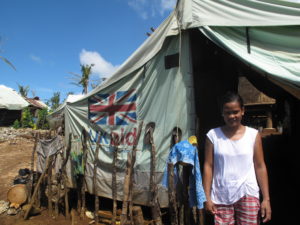Blog
Who Does the Research on Aid Effectiveness? It Matters.
Written by Francesco Obino (Global Development Network)
July 31, 2017
Accepted knowledge about what works, and what doesn’t, plays a critical role in decisions about aid, particularly at a time when donors face unprecedented pressure to demonstrate efficiency and effectiveness – value for money and impact. But how solid is this knowledge, and whose knowledge is it?
According to recent research, evidence on what works in aid remains thin, and accepted knowledge on how aid works even more so. The different timing of research and of aid policy cycles does not help. Politically charged questions regarding ‘whom should aid go to?’ and the question of ‘how does aid work?’ are very often part of separate discussions, and involve different people. Aid cannot wait, and there is just not enough time to address them in their logical order. The re-emergence of donors who place themselves outside the OECD’s ODA framework, like China and the Arab countries, only complicates things further. The latest call, this time by the President of the World Bank, to ask difficult question about aid’s capacity to be a catalyst of development efforts, makes this debate all the more central.
Two high-level dialogues organized last year by the Global Development Network, the Brookings Institution and the African Economic Research Consortium, with support from USAID, and held in October in Washington DC, USA, and in December in Dakar, Senegal, discussed whether research on development effectiveness can help, and if so, how.
These are some of the key arguments that emerged from a 5 panel discussions in which aid agencies, scholars and policy makers discussed the future of aid effectiveness research:
Are we asking the right questions?
The inadequacy of much of the research work currently underway emerged as a significant issue. The methodological and theoretical boundaries of mainstream approaches to researching aid effectiveness are still just too narrow. Development economics remains the discipline of reference for all major development actors, and the expectation put on economics-based methodologies are disproportionate to what a single discipline can achieve alone.
For Leonce Ndikumana (UMass) and Augustin Fosu (University of Ghana) the disagreement on whether aid works or not (or rather ‘mixed empirical evidence’) is the result of decades of misleading attempts to link ODA to national economic growth. For Ndikumana, some insight on the contribution of aid can only emerge from longitudinal studies that take context (history, in particular) very seriously. Looking at the impact of aid, sector by sector, across clusters of countries, and discussing the difference influence of these countries’ history on development, could be a first step. For Fosu, what matters is to see whether development assistance is integrated into of national policy, or whether it is operating in parallel. Deborah Brautingam (John Hopkins University) shows how much can be learnt about the workings of international development by tracing, literally door-to-door, Chinese businesses across East Africa.
What’s next?
Much of the conversation in Washington and Dakar was not about the next hot topics in aid effectiveness research, but about what broad-ranging questions will help define the future of development in Sub-Saharan Africa. Answering these questions should be as much a priority for recipient country governments as for development partners interested in becoming a catalyst of things that already exist in the so-called ‘developing’ world. Three broad questions stood out:
- What does the future of agriculture look like in the face of changing life aspirations of youth that place a high priority on rural-to-urban migration and careers in the service industry? Do these dynamics play out differently for young men and young women?
- How does innovation happen in developing settings, without the large investments or innovation infrastructure of world leaders in innovation (all aid giving countries)? Much has been written on reverse or frugal innovation – but what does it take to do it?
- What do we know about the use, quality and cost of financial inclusion tools, and their different impact on men and women – beyond just access?
Who should be asking and who should be answering these questions?
It was another message that marked the discussions both in Washington and Dakar. Saharah Moon Chapotin, Deputy Assistant to the Administrator in USAID’s Bureau for Food Security, put it like this: “Who does the research matters”. Credible, legitimate and salient research on aid effectiveness must be produced by institutions from recipient countries, responding in the first place to a national demand for evidence that can then also throw light on and qualify the impact of international aid.
Governments of recipient countries have a large role to play in supporting this demand for evidence and research, in collaboration with development partners but even more so on their own initiative, according to Kerfalla Yansane, a Senior Minister in the office of Guinea’s President. If ‘we’ want to answer the question of effectiveness, both government and researchers of aid receiving countries need to step up and take a lead in setting a research agenda. They must set the pace of the discussion, and feed it with findings. Answering others’ questions, or questioning others’ answers, will not be enough.
Francesco Obino is Head of Programs at The Global Development Network, a public International Organization that builds research capacity in development globally.

